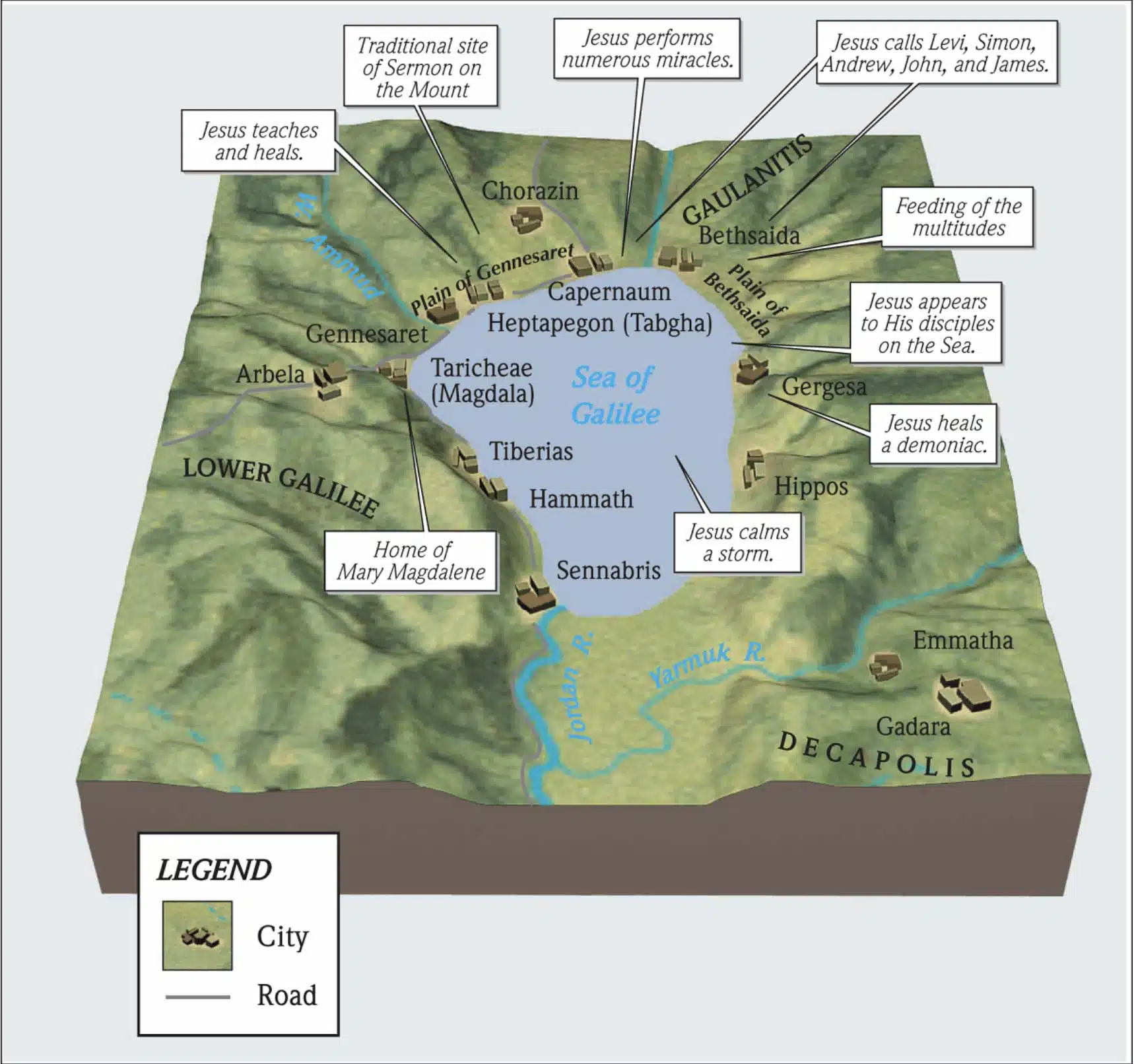Jesus shares two parables about the incompatibility between the old patterns of righteousness as taught by the Pharisees, and the new way of life that He has come to offer.
The parallel accounts of this event are found in Mark 2:21-22 and Luke 5:36-39.
Jesus continues his response to John’s disciples’ question, “Why do we and the Pharisees fast, but Your disciples do not fast?” (Matthew 9:14).
He does so with a pair of parables. The first parable uses the metaphor of clothing. The second parable uses the metaphor of wineskins.
Jesus’s first parable is, no one puts a patch of unshrunk cloth on an old garment; for the patch pulls away from the garment, and a worse tear results (v 16). Cloth was an expensive commodity in the ancient world. Clothing and garments were labor intensive and time-consuming to make. It was a far more efficient use of time and resources to repair an old garment that had a tear than it was to buy or make a new one. But in the process of patching tears in an old garment, one had to make sure they were using the proper patch of material. Because cloth shrinks overtime, especially after the first few times it gets washed, the garment-mender needed to use a patch of cloth that had already been shrunken to patch up a tear. If he or she used a new patch of cloth that was unshrunk, then the patch would shrink after being washed and pull away from the seams of the garment and a worse tear would result (v 16).
Jesus means by this parable that He, His teachings, and His kingdom are like a patch of unshrunk cloth (v 16). The traditions (like fasting) that the Pharisees have built up around the law are like an old garment that is tearing apart. Jesus did not come to repair this old garment. He is not interested in joining the old system of righteousness based on external rule-following that is riddled with tears of hypocrisy. He came to provide inner and external harmony between God and man.
Jesus did not come to mend here and there. He came to make all things new (Revelation 21:5). Taking His teaching as a patch to the old system would only make its tears worse. These old ways do not adequately reflect living the goodness of Christ. Therefore they need to be replaced. Jesus said He came to fulfill the Law and the Prophets (Matthew 5:17). A new approach is required for that to take place. If one is to accept Jesus’s teachings, and rule in His kingdom, he must set aside his old garments of righteousness measured by religious practice, and put on the new robes of Christ’s righteousness measured by loving others (Matthew 7:12; 22:11-14; Revelation 3:5). It will not work to use some of Jesus’s teachings to patch up a person’s righteousness. He must embrace the whole of who Christ is and what He commands.
Moreover, our hearts and minds are like old garments. Applying a new patch of unshrunk cloth of Jesus’s teaching will not mend their tears. It will make them worse. We need to be given entirely new hearts (Psalm 51:10) and new minds (Romans 12:2) that Christ offers us every day.
The pattern of Jesus’s second parable is similar to His first one. In the same way that no one puts a patch of unshrunk cloth on an old garment, neither do people put new wine into old wineskins (vv 16-17). This is because new, unfermented wine will expand and burst the inflexible old wineskins. The result is that the new wine spills and is wasted and the old wineskin is ruined. New wine must be put into fresh wineskins, if both are to be preserved (v 17).
The meaning of the two parables is also very similar. The new wine is Jesus and the kingdom life He offers. The old wine (though unmentioned) is the self-righteous hypocrisy based on legalism as promoted by the Pharisees. What Paul will call the “righteousness of faith” versus the “righteousness of the law” (Romans 9:30-33). The fresh wineskins are disciples whose hearts and minds are ready to follow Jesus and His teachings. The old wineskins are those seeking to manufacture righteousness by externally following the Law and the traditions built up around the Law.
One of the main points of both parables is that Jesus, His teachings of righteousness, and His kingdom are incompatible with the tired, worn-out, stale way of life that the Pharisees imposed. This incompatibility is seen in another contentious moment between Jesus and the religious establishment later in Matthew:
“Then some Pharisees and scribes came to Jesus from Jerusalem and said, ‘Why do Your disciples break the tradition of the elders? For they do not wash their hands when they eat bread.’ And He answered and said to them, ‘Why do you yourselves transgress the commandment of God for the sake of your tradition?’”
(Matthew 15:1-3)
Just as no one can serve two masters (Matthew 6:24), the new wine of Christ cannot be put into the old wineskins of religious practice (v 17). Either we continue to be old wineskins that hold the tasteless, legalistic, and hypocritical wine of self-seeking. Or we become new and fresh wineskins in Christ that are filled with the vibrant wine of His righteousness as expressed in serving others. We will not experience the righteousness of Christ or His kingdom, if we remain an old wineskin. We must be made new. To receive the new wine of Christ, we must become fresh wineskins.
Biblical Text
16 But no one puts a patch of unshrunk cloth on an old garment; for the patch pulls away from the garment, and a worse tear results. 17 Nor do people put new wine into old wineskins; otherwise the wineskins burst, and the wine pours out and the wineskins are ruined; but they put new wine into fresh wineskins, and both are preserved.”
Check out our other commentaries:
-
2 John 1:7-11 meaning
There are liars in the church who teach that Jesus was not both man and God, but merely had the appearance of being a man....... -
Colossians 3:12-15 meaning
Paul gives some examples of what it means to think and act according to the things above. And what binds them all together....... -
Matthew 25:46 meaning
The Parable of the Sheep and the Goats: “The Closing Remark” Jesus concludes His teaching about the Judgments regarding the Sheep and the Goats with a...... -
Genesis 22:15-18 meaning
God promises that Abraham’s descendants will be many and they will conquer their enemies. Through Abraham’s obedience, all the nations of the earth will be...... -
Deuteronomy 16:13-15 meaning
The Israelites were commanded to joyfully celebrate the Feast of Booths with all those who belong to them. This feast commemorated the journey from Egypt......




